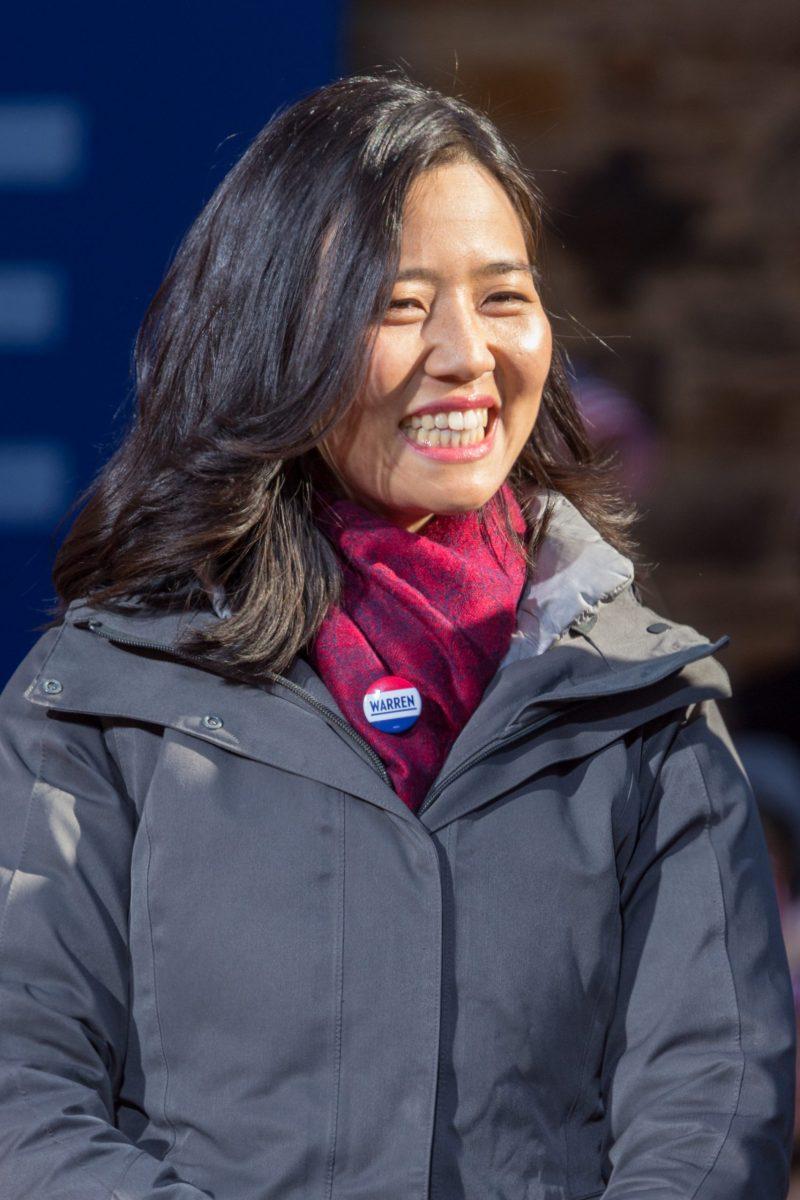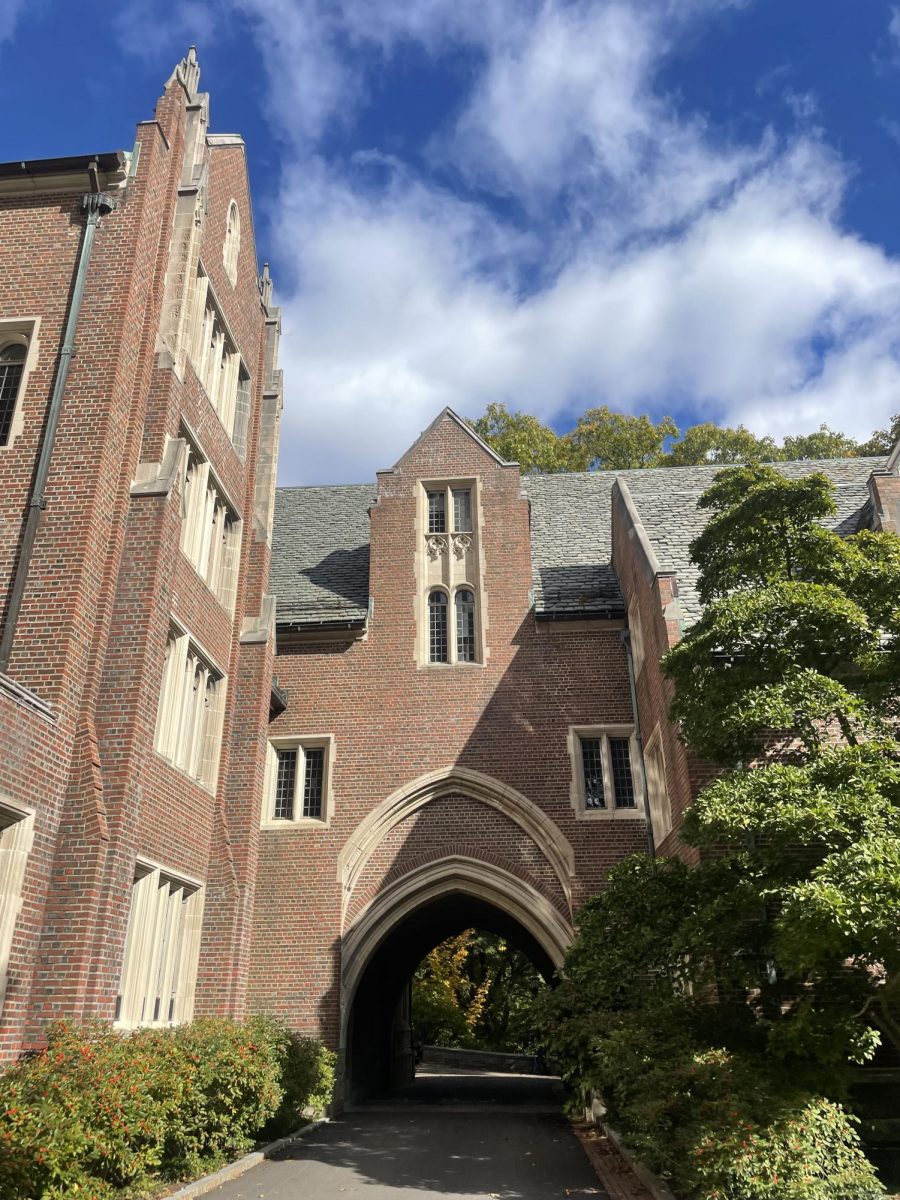On Nov. 2, 2021, the Boston mayoral election resulted in a landslide win for Michelle Wu, 36, the current president of Boston’s City Council. Wu was sworn in on Nov. 16. She is not only the first woman to serve as Boston’s mayor, but also the first person of color and first Asian American after defeating fellow Democrat Annissa Essaibi George, 47. Wu received 64.2% of total votes casted, while Essaibi-George received 35.8%.
Wu, the daughter of Taiwanese immigrants and an Illinois native, is the first elected candidate in Boston’s 200 year history who is not white or male. With a B.A. in economics from Harvard University and a J.D. from Harvard Law School as a protégée of then-Professor, now Senator Elizabeth Warren, Wu labels herself as a progressive Democrat and a community builder, promising bold changes for Boston in the future to come.
Faced with the immediate challenge of tackling post-pandemic life, Wu will focus especially on economic recovery centered on local small businesses, their workforces and the communities they serve. Wu also plans to tackle social injustice in public health and wellbeing by initiating more accessible healthcare access for all citizens, implementing a citywide plan to address homelessness, substance use, and mental health, and create a sustainable food system to fight food insecurity.
Moreover, Wu is very firm on keeping the indoor mask mandate for Boston Public Schools (BPS), even if schools reached the 80% of vaccination threshold for relaxing the requirement.
“Regarding her policies, I was especially delighted by her cautiousness for handling COVID-19, such as continuing the mask mandate for public schools in Boston,” said Clara Fu ’24. “Personally, I think mayors in other cities should adopt such a cautious attitude regarding COVID. Michelle Wu is a pioneer who broke the glass ceiling in politics, and I feel proud of her achievement.”
In the long run, Wu’s visions focus on bringing justice to marginalized groups by focusing on closing the racial wealth gap, as well as public health and safety. Her priorities include housing stability for Boston families by imposing rent control, police reform through union contracting and abolishing the Boston Planning & Development Agency (BPDA) to bring the power of urban planning back to its people. She is also a firm supporter of environmental justice and plans on imposing a city-wide Green New Deal, which includes ambitious plans to make the MBTA free. Wu will first prioritize the bus system, which the city has localized control over, by expanding the existing free bus pilot program from one route to three and working with state-level partners to make the “T” and commuter rail free, given that the greater MBTA is a state-run system.
In the days leading up to the mayoral election, the student-run organization Wellesley College Democrats campaigned in favor of Michelle Wu.
“The Wellesley College Democrats E-Board voted unanimously to endorse Michelle Wu for Mayor on behalf of the broader organization because, in short, she’s a bold leader with a big vision for Boston,” said Sarah Green ’22, president of Wellesley College Democrats. “She has a proven track record as a progressive on the Boston City Council and has spent the last decade building coalitions in every neighborhood of the city. Through phone banking and canvassing, the Wellesley College Democrats witnessed the energy for Wu and her platform — climate justice, affordable housing, accessible public transportation — and we knew that she was worth putting our time and efforts behind.”
For students such as Jocelyn Lyu ’24, who ran into Wu in Chinatown on Saturday, Nov. 6, 2021 Wu’s success story acts as an inspiration for many future women leaders to come.
“Michelle Wu is an exceptionally inspirational figure to me because of her personal struggles,” said Lyu. “Seeing her in person and talking to her really just confirmed my impression of a strong and bright young woman. And I think in the future she will become a model for all young women.”
Wu’s victory marks a historic trend in Boston’s history as the city opens itself to more progressive policies and leaders in an attempt to tackle social injustice, racism, climate change and recovery.
“I believe that the success of Michelle Wu, and even Annisa Essaibi George, is not only about minority representation, but on a larger scale, how the American political system and our society in general is really starting to pay attention to ideas and policies that are truly inclusive and beneficial to all,” said Ella Xiao ’24.






